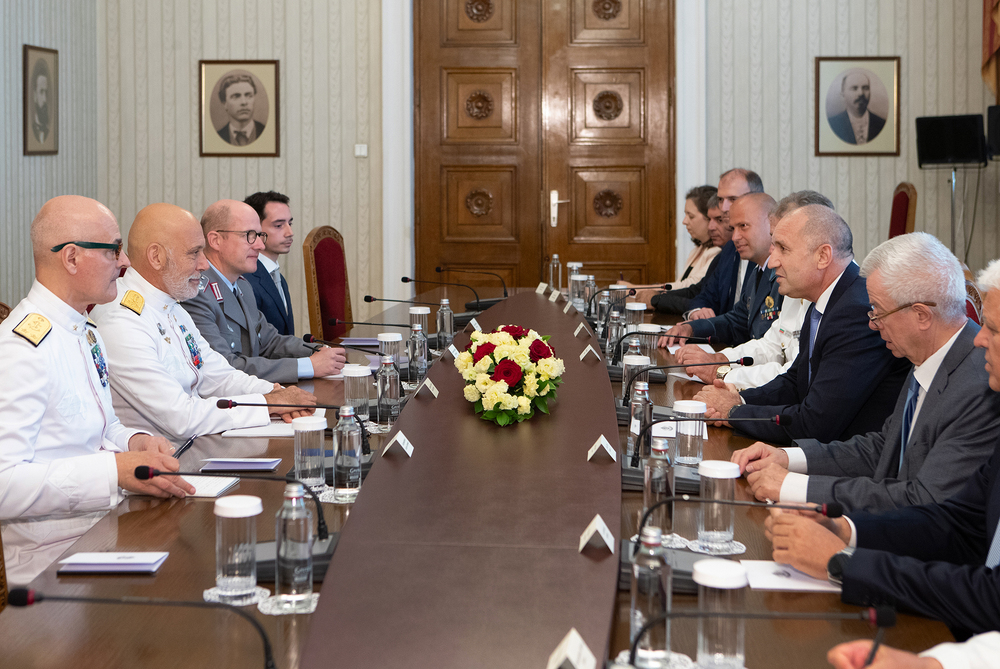site.btaPresident Radev: Modern Defence Capabilities Require Broad Public Support


Efforts to build modern defence capabilities can only be effective when backed by public support, President Rumen Radev said on Wednesday during a meeting with the Chair of NATO’s Military Committee, Admiral Giuseppe Cavo Dragone, who was visiting Bulgaria, the presidential press secretariat reported.
“The main challenge facing the Armed Forces is how to most effectively transform political will and allocated resources into adequate defence capabilities,” President Radev stated.
He emphasized Bulgaria’s aim to continue asserting itself as a factor of stability in a region surrounded by multiple crises – the war in Ukraine, ongoing military actions in the Middle East, tensions in the Western Balkans, and other regional challenges. He also highlighted the significant contribution of the NATO Multinational Battlegroup in Bulgaria, led by framework nation Italy, and the joint efforts to strengthen cooperation in the Black Sea region.
Admiral Cavo Dragone noted that increased defence spending across NATO must be used wisely and should include full utilization of member states’ industrial capacity.
Both the Bulgarian President and the Chair of the NATO Military Committee stressed that the development of the defence industry should be viewed as part of national defence capabilities. President Radev pointed out that Bulgaria has experience and well-established traditions in key sectors of the global arms market, including ammunition production, small arms, drones, and anti-drone systems.
Within NATO, there should be a drive toward greater integration of the defence industry from the early stages of development and production, to avoid deepening the divide between producing and consuming countries of defence products, Radev added.
He identified personnel shortages as a critical challenge not only for the Bulgarian Armed Forces but also across European armed forces. President Radev called for the introduction of NATO-wide standards for recruitment and training of military personnel.
It was agreed that building defence capabilities extends beyond the Armed Forces and touches on key areas such as the economy, business competitiveness, supply chain security, and infrastructure. Radev urged NATO to step up its efforts in developing regional connectivity infrastructure, including the Alliance’s planned fuel pipeline, the completion of Transport Corridor 8, and improving links via the Danube River.
/DD/
news.modal.header
news.modal.text